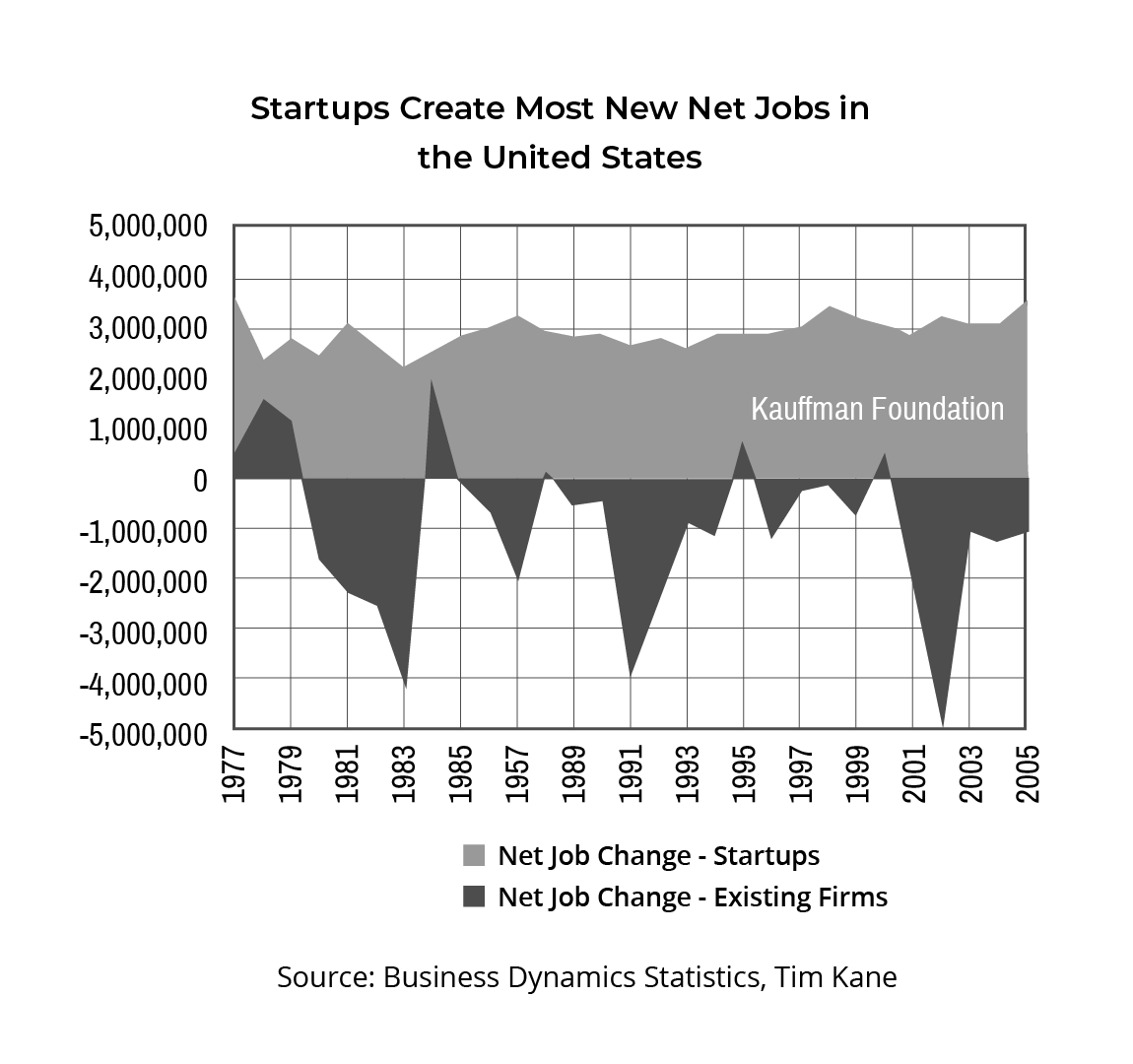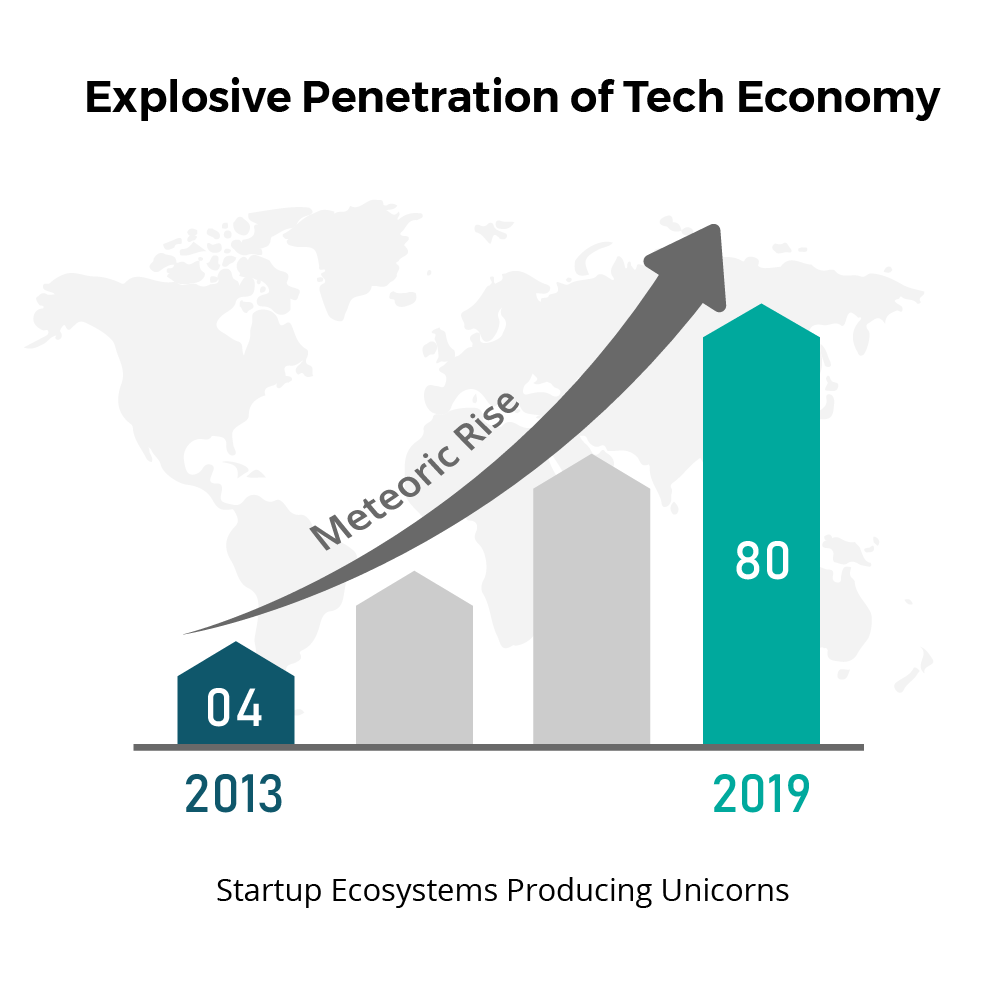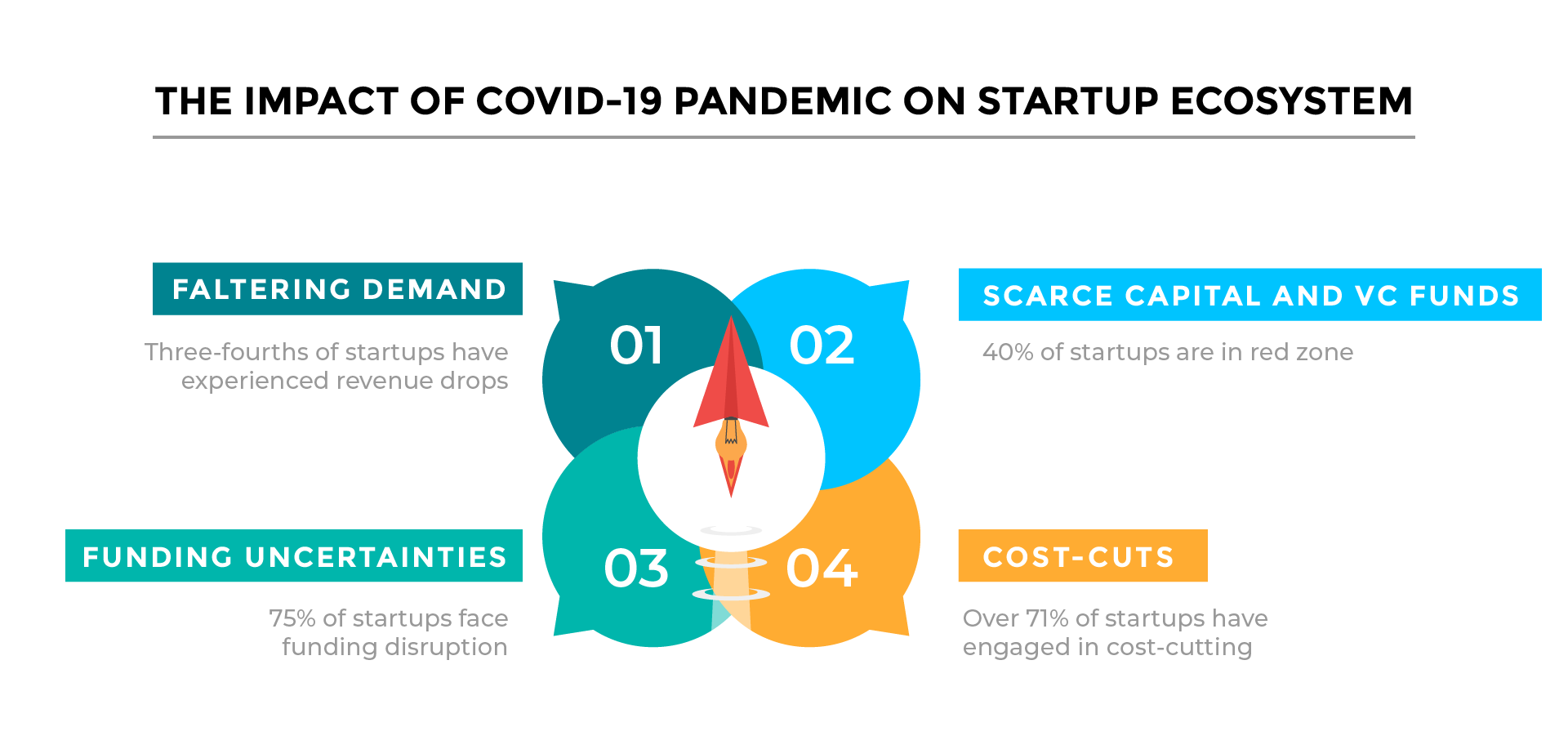Today, we live in a different world, a world with a blazing speed of innovation and creative destruction. The pandemic has furthered this phenomenon and disrupted the startup ecosystem profoundly. The impact is significant because startups undoubtedly hold the key to the key to economic power, prosperity, and most importantly to economic recovery.
The Pandemic’s Effect on Global Economy and Employment
The global economy will shrink, that’s forgone, and that the economic heads winds will be strong in the near future. According to the World Bank, the global economy is expected to contract by 5.2%. For the first time in living memory, the Asian economy will contract, according to IMF’s latest estimates, a contraction of 1.6%.
According to the latest data by the International Labor Organization (ILO), the COVID-19 crisis is expected to wipe out 14% of working hours in Q2 2020, which is equivalent to the loss of 400 million full-time workers. The effect is especially acute in upper-middle-income countries. ILO (1) estimates that over 81% or 3.3 billion people are affected by complete full or partial workplace closures. The rise in unemployment is a serious issue. In this critical time, when big organizations are laying-off employees, it is thus important to investigate the pandemic’s effect on the startup ecosystem and the role they play in revitalizing the economy as well as a job creator.
Significant Reasons Why Startups Ecosystem Needs to be Protected:
Startups are critical to the health of the economy, innovation, and employment creation. Here are some major findings that present a strong case as to why nations must devote great attention to startup ecosystems.
Job creation: Research by Kauffman Foundation (2) and others reveals that most jobs are created by startups that scale.
The research findings espouse support for young startups, as they are the net job creators and suggest the government support them instead of large and old ones.
 The High Technology Job Multiplier:
The High Technology Job Multiplier:
Economist Enrico Moretti, Economist, Federal Reserve Bank of San Francisco, in his book ” The New Geography of Jobs “, 2012, illuminates the significant issue of job creation. He elucidates that- for each new high-tech job in a city, five additional jobs are created outside of the high-tech sector in that city, both in skilled occupations (lawyers, teachers, nurses) and in unskilled ones (waiters, hairdressers, carpenters). Most sectors have a multiplier effect but, the innovation sector has the largest multiplier of all: about three times larger than that of manufacturing. The focus on preserving and encouraging the IT ecosystem and jobs is thus highly vital for any economy.
Startup Ecosystem: The way to Economic Recovery and Prosperity
According to the Congressional Research Service report, R41523, 2020, though business startups are a critical source of job creation, because of the high mortality rate, they have a limited effect on net job creation over time.
Also, Daniel Isenberg, president of Entrepreneurship Policy Advisors and adjunct professor at Columbia Business School and Babson, through his various research publications, does not support the idea of having directed a startup focused policy. His research proposes support for their ecosystem.
Through these findings, it is clear that each institution espouses policy and practice that nurture complex entrepreneurship ecosystems where high growth firms can evolve, instead of focusing on startups. It is abundantly clear, for nations to prosper they need a thriving ecosystem and one that helps them scale.
The significance of startup ecosystems is beyond debate, and thus must be explored minutely to derive meaningful lessons.
The Effect of Pandemic on Startup Ecosystem
The global startup economy is large, approximately $3 trillion in economic value; they also create employment and are an unparalleled source of innovation.
Unfortunately, during these challenging times, they face the double whammy of shrinking demand, and drop in investments by VCs has raised alarm bells for startups. To fully capture the effect, let’s explore the trends leading up to, and those that ensue in the aftermath of the downturn.
Lead Up to the Pandemic:
The major startup ecosystem trends before the pandemic were:
- Explosive Penetration of Tech Economy
Since 2013, when Aileen Lee coined the term Unicorn, there were only four ecosystems that produced technology unicorns or exits; in 2019, there was an astonishing number of ecosystems, over 80, that are creating tech unicorns.

- The Rise of Asia-Pacific
With the rise of technology startups, Asia-Pacific has made real progress; from 20% in 2012, it now has around 30% of the top ecosystems.
The Impact of COVID-19 Pandemic on Startup Ecosystem
For startups, the situation is critical as they brave the twin shockwave of Demand and Capital weakness. Here are the consequences as captured by major research by Startup Genome (4):
- Faltering Demand:
Almost three-fourths of startups have experienced revenue drops, averaging around a shrinkage of one-third. Unsurprisingly, the industries related to technology, especially, advanced tech, have experienced the least fall in revenue. These industries include- Blockchain, Crypto, cybersecurity, Gaming, digital media, Bio-tech, Edu-tech, Fin-tech, AI, and big data.
- Scarce Capital and VC funds:
A significantly more number of startups, about 40% are now in the red zone, with only 3 months of runway. India, where the lockdowns were the most severe, 9 out of 10 startups have experienced a decline in revenue, according to Nasscom. Around 70% of startups are in the red zone. Also, about 40% of startups have either halted operations temporarily or permanently.

Conclusion
The startup ecosystem is one of the most significant economic hotspots of a country. The pandemic has disrupted it in the severest possible way. The impact can have long-standing repercussions on global economic growth, and thus there is a need for policy focus to support them.
The response is the key to navigating the crisis. Technology is a key enabler to putting up a good response with agility in changes in business models, sales channels as well as agile changes in manufacturing and business processes. Tech-enabled agility can only help startups do better in serving customers and with a concomitant increase in the probabilities of future funding as well.
For detailed read on how startups must strategize technology and innovation please read the white paper.
Endnotes
1. https://www.ilo.org/global/about-the-ilo/newsroom/news/WCMS_740893/lang–en/index.htm
2,The Importance of Startups in Job Creation and Job Destruction, Kauffman Foundation Research Series: Firm Formation and Economic Growth, 2010
3. https://crsreports.congress.gov/product/pdf/R/R41523/20
4. Source: Startupgenome; the Global Startup Ecosystem Report 2020 (GSER 2020)
 All Posts
All Posts


